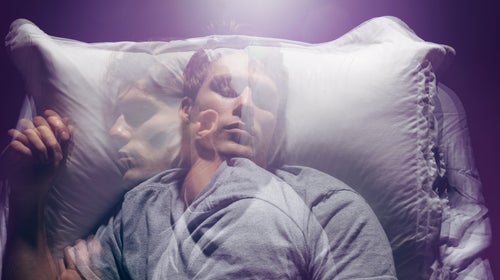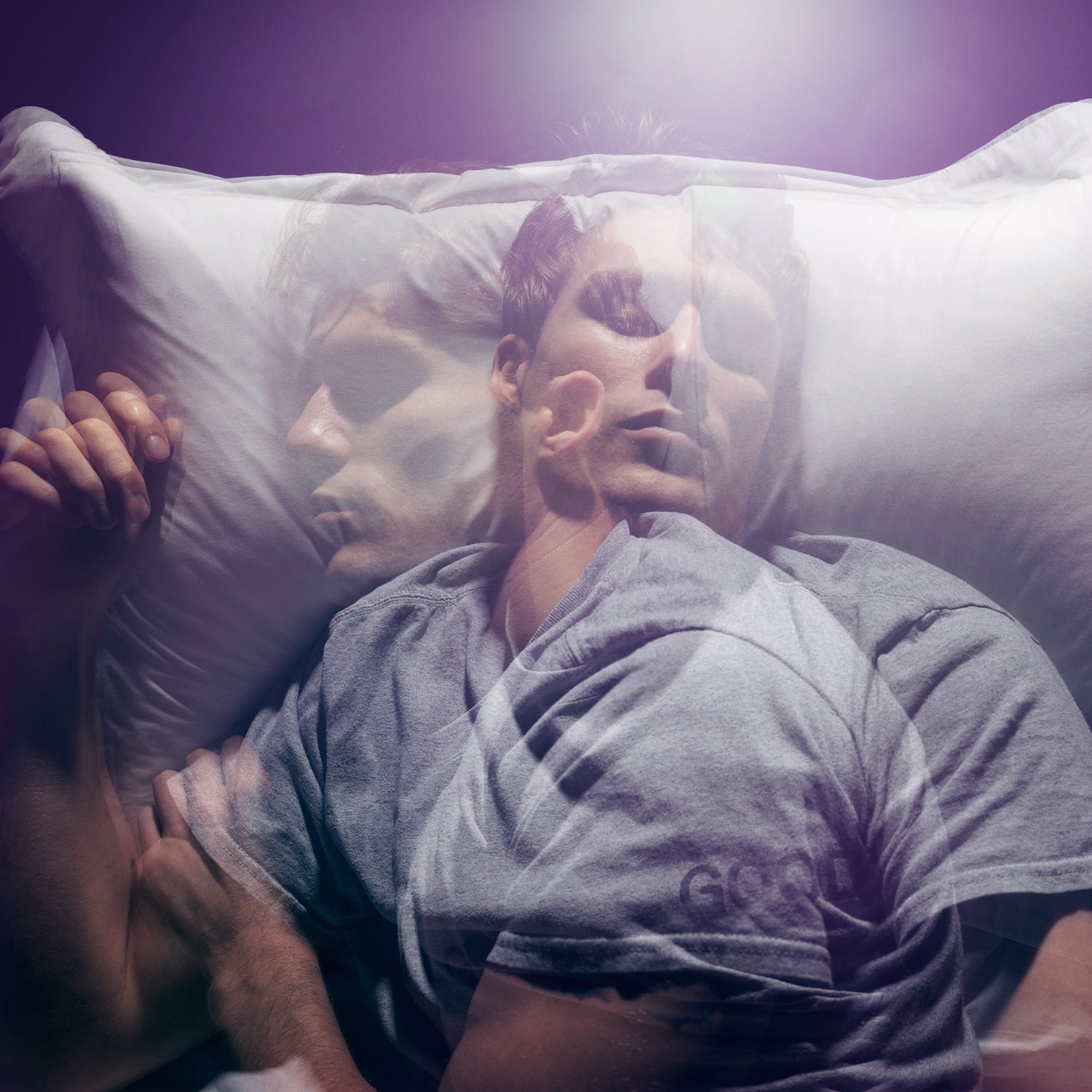When Leslie Sherlin studies the brains of athletes like three-time volleyball gold medalist Kerri Walsh Jennings and former Major League Baseball all-star Carlos Quentin, one shared attribute always stands out: elite athletes are elite sleepers. “They report increased ability to fall asleep and more efficient or productive sleep,” he says.
Life-Hacking Special
 Find out how to eat, train, work, and sleep better in our all-encompassing life-hacking special.
Find out how to eat, train, work, and sleep better in our all-encompassing life-hacking special.Sherlin is a psychophysiologist, and at his company, SenseLabs, a startup that develops mobile brain-training apps, he and his team recently began exploring how to teach people to sleep better. Their starting point was the belief that people focus far too much on the amount of sleep they get instead of the nature of that sleep. “The biggest misconception out there is that there’s some magical number of hours and that sleep quality equals sleep time, or even time in bed,” he says. Sherlin cites a high-profile 2015 study published in Current Biology that revealed how preindustrial cultures in Africa and South America were able to thrive on 5.7 to 7.1 hours of sleep per night.
That’s not to say that modern humans function optimally with minimal shut-eye. Research shows that getting less sleep leaves us prone to illness and poor decision making. But Sherlin argues that your sleep should be approached much like your diet, with many ingredients that ultimately determine what’s healthy. One reason preindustrial communities might have been able to get away with less sleep is that the rest of their lifestyle contributed to peaceful slumber—physical activity was an intrinsic part of their day, and they didn’t spend hours staring at screens emitting blue light that scrambled their sleep hormones. That’s why, if you’re feeling sleep deprived, lying down for more hours every night may not make much of a difference. Instead, Sherlin advocates logging a range of variables, from obvious influencers like caffeine, exercise, and the darkness of your bedroom, to subtle indicators that require more attention, like your heart rate and core temperature.
Sherlin stresses that all these variables are individual and that you need to understand how each one influences the quality of your rest. Developing good sleep hygiene, as he calls it, requires discipline. Thus, the SenseSleep app (free; iOS) functions like a fitness hub, capturing metrics from data trackers and other apps, and prompting you to record information like how you feel first thing in the morning and what you’re eating, so you can begin to notice patterns. It also offers breathing exercises to calm you down before you hit the sack.
Make careful observations for several weeks and you’ll develop a sense of how various factors affect your sleep and how to make adjustments when one of them is compromised. “You’ll be able to deal with things like travel or missed workouts,” he says. “No one thing will ever put you over the threshold if the rest are in order.”
Pro Tip: Three Common Causes of a Poor Night’s Rest
Going Hard: Working out to exhaustion may sound like a recipe for sinking into your pillow, but pushing past your limits actually spurs a number of physiological processes that can disrupt sleep (and diminish muscle recovery). Track your exercise carefully and look for correlations with rough nights. And pay attention to when you train—if after-work sessions keep you up, try switching to dawn patrol.
Core Body Temperature: Your temperature shifts with your circadian rhythm, falling when your body wants to sleep and rising when it wants to wake up. Take your temp regularly. Notice a drop of a couple degrees around 10 p.m.? Give up Jimmy Fallon. Don’t be surprised if you start rising earlier—and recording an elevated temperature when you do.
Diet: Minor sensitivities—particularly to inflammatories like corn and dairy—can lead to immune responses that cause sleep disturbances and even insomnia. Cut these out of your meals, then slowly add them back one at a time and log your reactions.
You Can Hack It: Resources for Rapid Improvement
- Twilight: Adapts your phone or tablet screen to sync with the time of day, stripping out blue light—shown to disrupt sleep hormones—in the evenings with a soft red filter. Free; Android
- Relax and Rest Guided Meditations: This app offers three different sessions: a five-minute breath-awareness exercise to give your mind a break, a 13-minute meditation to calm you down before sleep, and a 24-minute whole-body relaxation exercise. $2; iOS
- BedJet: Everyone sleeps best at a specific temperature, usually around 68 degrees. The BedJet sleep system pumps air into your sheets, helping you dial in a precise temp without constantly layering blankets or sticking your feet out the sides. $399
My Way: Professional Ski Mountaineer Caroline Gleich
“With sleep I binge and purge. Some days I’ll get only a few hours, then I’ll catch up and get 13. After a big trip, I’ll flop on the couch and watch TV—you have to be able to turn off.”

